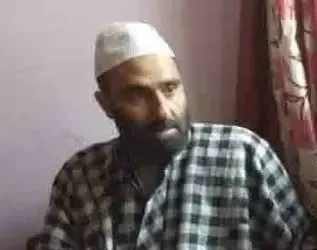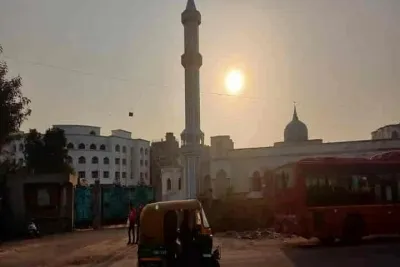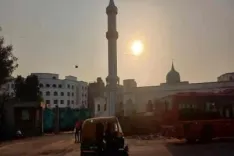Amit Shah's Visit to Kashmir Sees Another Separatist Leader Depart from Hurriyat

Synopsis
Key Takeaways
- Amit Shah's visit coincides with a separatist leader's departure from Hurriyat.
- Bashir Ahmad Andrabi pledges allegiance to the Constitution.
- Growing trend of separatist leaders exiting Hurriyat.
- Legal actions warned against misuse of identities.
- Shift reflects increasing national integration in Jammu and Kashmir.
Srinagar, April 7 (NationPress) On the second day of Union Home Minister Amit Shah’s three-day visit to Jammu and Kashmir, another separatist leader has withdrawn from the Hurriyat Conference, affirming his commitment to the nation’s Constitution.
The Union Home Minister is expected to arrive in Kashmir in the afternoon after concluding his tour of the Jammu division.
As Amit Shah plans his visit to the Valley, Bashir Ahmad Andrabi, the head of the Kashmir Freedom Front (KFF), publicly declared his complete detachment from the separatist politics of the Hurriyat Conference and pledged loyalty to the Constitution.
In a formal statement, Andrabi emphasized that neither he nor his organization has any ties with the All Parties Hurriyat Conference or its factions.
He cautioned that any attempts to associate his party with separatist groups would result in legal repercussions.
“We reject the ideology of the Hurriyat Conference, which has failed to serve the interests of the people,” Andrabi stated.
This departure aligns with a growing trend among former separatist leaders who are distancing themselves from the Hurriyat.
Recently, Ghulam Nabi War, the chairman of Tehreek-i-Istiqamat, also cut ties with the Hurriyat Conference, mentioning that it has lost credibility and public trust.
War further warned against the unlawful use of his name or his party’s identity, indicating legal consequences for such actions.
Prior to this, both the Jammu & Kashmir Democratic Political Movement (JKDPM) and the Jammu and Kashmir People’s Movement (JKPM) exited the Hurriyat Conference, affirming their allegiance to the Constitution and their faith in the democratic process.
The Union Home Minister has praised these developments, viewing them as a sign of increasing national integration in Jammu and Kashmir post the revocation of Article 370.
The disbanding of the Hurriyat Conference follows the virtual disappearance of the separatist coalition, originally established in 1993 to provide a political voice to the armed insurgency.
Initially, 26 social, political, and religious groups, including the Kashmir High Court Bar Association and the employees’ association, were part of the original Hurriyat Conference formed on March 3, 1993.
The Hurriyat split into two factions on September 7, 2003: one led by hardliner Syed Ali Shah Geelani and the other by moderate leader Mirwaiz Umar Farooq.
Since the abrogation of Article 370 on August 5, 2019, the Hurriyat Conference has become inactive, with no separatist political activities like shutdowns or protests during national celebrations.
The incidents of stone pelting, which previously posed a significant law and order challenge in Kashmir, have entirely ceased following the abrogation of Article 370.










